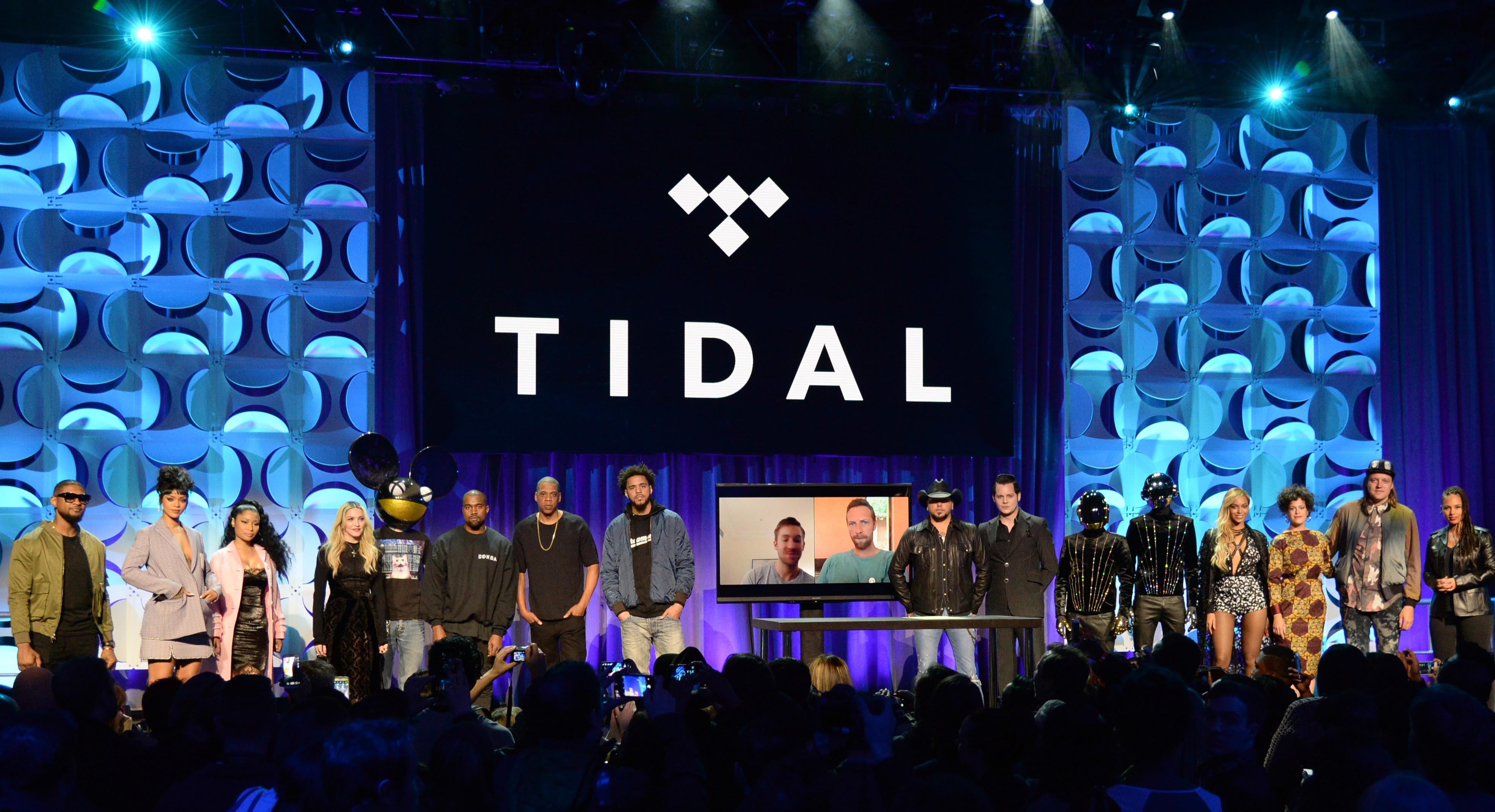After a disappointing first year, Tidal is finally bringing out its big guns. But is exclusive music from Kanye, Rihanna and more enough to save the struggling streaming service?
As critics, fans, and the artist himself debate the merits of Kanye West’s The Life Of Pablo, the album has already proved a success in at least one regard. After streaming the album exclusively on Tidal – the rapper and his A-lister friends’ rival to Spotify, launched almost one year ago – the streaming service has shot to the top of the iTunes free app chart and into the top 30 grossing apps. After 12 months of struggle, Tidal finally seems to be on the right path.
Very few new technologies get a test case as perfect as Tidal got last week when Kanye West gave its subscribers exclusive access to T.L.O.P. The Yeezy Season 3 launch event at Madison Square Garden sold out in ten minutes largely because fans were so eager to hear the new album, so if the same opportunity couldn’t make people sign up for Tidal, what would?
This is a moment of truth for the star-studded music streaming service. Tidal has spent its first year of existence lagging behind: it announced its millionth subscriber in October 2015. Spotify had over 20 million subscribers last June and Apple Music hit 11 million subscribers last week. Given the gaggle of music celebrities that showed up for Tidal’s weird press unveiling last year, its best shot at differentiating itself from the competition seemed to be exclusive content. Beyoncé and Nicki Minaj’s cheeseburger-laden ‘Feeling Myself’ video debuted on Tidal but, anecdotally, failed to move the needle. Rihanna’s decision to give Anti exclusively to Tidal subscribers a week early was the first big pay-off for the company, finally nudging the app up the charts.
The success of The Life Of Pablo seems like proof that a full album from an A-list artist with a legitimate rollout — and yes, as long as Kanye has everyone’s attention, this counts as a proper push — is enough to drive listeners to Tidal. Even if the majority of subscribers are planning on cutting loose after the 30-day free trial, not all will. Some will actually like Tidal enough to pay for it, while others will just forget to cancel (never forget that AOL’s primary source of revenue, as of 2014, comes from dial-up accounts set up in the ‘90s.)

Tidal can get a modest boost every time Arcade Fire, Daft Punk and Usher puts out a new project.
If artists can be convinced to cooperate, Tidal can get a modest boost every time one of Jay Z’s Tidal co-owners – a list that includes the Arcade Fire, Daft Punk and Usher – puts out a new project. Even without Spotify’s deep catalog or Apple’s iTunes-based leverage, Tidal is good enough to hold on to the opportunistic subscribers it gains if it can guarantee regular early access to big albums. (Fixing their janky app would help as well.) Artist cooperation is still a big “if”, however. With streaming becoming an increasingly reliable way to monetize music, artists might be hesitant to antagonize Tidal’s competitors.
The most intriguing wrinkle in The Life Of Pablo rollout is that Kanye now says he will permanently restrict the album to Tidal and never put it up for sale through Apple. Granted, everything he tweets right now should be taken with an entire shaker of salt, but is this really such a crazy idea? He sells out arenas on a whim, he claims to be $53 million in debt, and his wife is worth almost as much as he is. Money is, at best, an abstract concept to him. The infrastructure around him needs the streaming revenue more than he does, and he arguably hasn’t needed that infrastructure for three albums now. Rihanna, Jay Z and Beyonce are probably a little more pragmatic about their paper, but also share Kanye’s self-sustaining tour momentum and professional independence. Is it so insane to think they might all do Tidal-exclusive releases? Given Kanye’s zeitgeist-y concerns about institutional control of black music, it’s not unreasonable to think artists might fight the power by using their leverage to build up a (black) artist-owned company.
With that said, Tidal, Apple Music and Spotify are barely direct competitors. Only Spotify is operating a straightforward business, balancing fees from a massive global subscriber base with big, costly licensing deals that ensure it has the deepest catalog for its listeners. Apple only cares about music because it can sell more iPhones, and Apple Music’s numbers don’t have to add up if other divisions are making up the difference. With The Life Of Pablo, it looks like Tidal has the potential to carve a niche with star power. Given the flux in the industry, that’s one of the more stable bets available.
It’s most interesting to see the service as something different: a gathering place for tired megastars who just want to put their damn albums out. It works both for Kanye, who will no longer bend to the logic of supply chains, and for Rihanna, who just wants to get zooted with the dog she found in the club. Whether you are too much trouble for the machine, or the machine is too much trouble for you, you are welcome at Tidal.






























